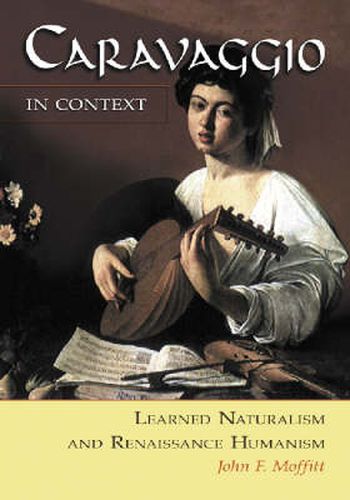Readings Newsletter
Become a Readings Member to make your shopping experience even easier.
Sign in or sign up for free!
You’re not far away from qualifying for FREE standard shipping within Australia
You’ve qualified for FREE standard shipping within Australia
The cart is loading…






This title is printed to order. This book may have been self-published. If so, we cannot guarantee the quality of the content. In the main most books will have gone through the editing process however some may not. We therefore suggest that you be aware of this before ordering this book. If in doubt check either the author or publisher’s details as we are unable to accept any returns unless they are faulty. Please contact us if you have any questions.
Italian painter Caravaggio was recognized by his contemporaries as a dedicated practitioner of il naturalismo and a learned painter. His use of the chiaroscuro technique was skilled and his subject matter, still lifes and genre paintings, was unique. Through detailed analysis of works from Caravaggio’s early Roman period, 1594-1602, this study places his art in a humanistic context, making it an expression of
learned naturalism,
a procedure committed to a close study of the phenomenal world and corresponding to contemporary ventures into empirical science. The work grounds Caravaggio’s artistic techniques in cultural context and situates his subject matter within the interest of his patrons, influential Romans whose tastes reflected current Renaissance interests in humanistic studies, emblematic literature, and classical lore. The end result is to show an artist who was thoroughly grounded in the humanist milieu of his erudite patrons. Sources include writings addressing art’s instructive purposes and the classical literary sources commonly manipulated in Caravaggio’s time. The work is illustrated with Caravaggio’s works as well as related images.
$9.00 standard shipping within Australia
FREE standard shipping within Australia for orders over $100.00
Express & International shipping calculated at checkout
This title is printed to order. This book may have been self-published. If so, we cannot guarantee the quality of the content. In the main most books will have gone through the editing process however some may not. We therefore suggest that you be aware of this before ordering this book. If in doubt check either the author or publisher’s details as we are unable to accept any returns unless they are faulty. Please contact us if you have any questions.
Italian painter Caravaggio was recognized by his contemporaries as a dedicated practitioner of il naturalismo and a learned painter. His use of the chiaroscuro technique was skilled and his subject matter, still lifes and genre paintings, was unique. Through detailed analysis of works from Caravaggio’s early Roman period, 1594-1602, this study places his art in a humanistic context, making it an expression of
learned naturalism,
a procedure committed to a close study of the phenomenal world and corresponding to contemporary ventures into empirical science. The work grounds Caravaggio’s artistic techniques in cultural context and situates his subject matter within the interest of his patrons, influential Romans whose tastes reflected current Renaissance interests in humanistic studies, emblematic literature, and classical lore. The end result is to show an artist who was thoroughly grounded in the humanist milieu of his erudite patrons. Sources include writings addressing art’s instructive purposes and the classical literary sources commonly manipulated in Caravaggio’s time. The work is illustrated with Caravaggio’s works as well as related images.